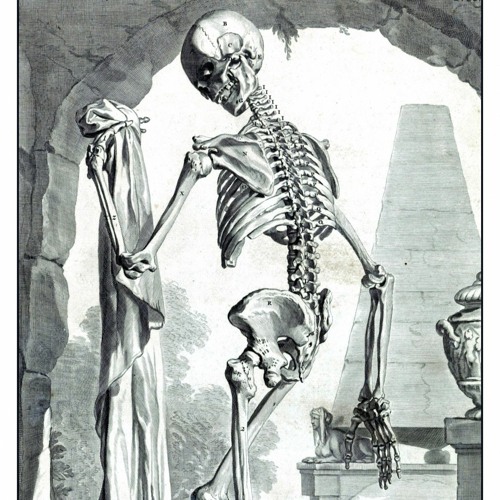1. The offence is the point
We censor ourselves every day; it’s the price we pay for society. We don’t tell the shopkeeper that they’re ugly; we don’t tell our boss that they’re an idiot; we don’t tell our child that their drawing is at best amateurish. We say other things, things that will help our relationships rather than harm them; it’s possible that our relationships would improve if we told the unvarnished truth, but extremely unlikely. We censor ourselves because we value those relationships; we want to be better people in a better world.
Those unable to censor themselves – people with mental health issues, for example – are treated with suspicion and scorn; their inability makes them at best objects of pity, and at worst objects of wrath. Those who choose not to censor themselves have a more ambiguous status; in real life we avoid them like the plague, but on stage or screen they’re often held up as mavericks from whom we can learn, or wisecrackers whose cracks reveal their wisdom. The Fool has a licence that we do not, which is why we enjoy watching them.
Jimmy Carr makes a living by playing such a Fool. He’s cornered the market on being edgy-yet-mainstream, but it’s important to remember that the point of edgy jokes is that they work by making people nervous; I know this joke is offensive, but I find it funny. His career rests on the high-wire feeling you get listening to somebody letting their internal censor take a break, a feeling you can enjoy because it’s in the controlled environment of a comfortable theatre. I know this is wrong, but we’re all laughing at this together, which makes it alright.
In his latest show, Carr tells the following joke:
“When people talk about the Holocaust, they talk about the tragedy and horror of 6 million Jewish lives being lost to the Nazi war machine. But they never mention the thousands of Gypsies that were killed by the Nazis. No one ever wants to talk about that, because no one ever wants to talk about the positives.”
The joke caused a huge amount of offence, with much of it coming from the Roma community it targets. One of the common responses to this offence is that we shouldn’t be offended because it’s “just a joke”, but the offence is the point; if the joke didn’t cause offence then it wouldn’t be an edgy joke, and edgy jokes are what Carr trades in, so much so that he draws attention to it repeatedly during his shows. His jokes are supposed to offend people, and if they didn’t offend then it would be a sign that he wasn’t any good at his job.
The defence “Don’t be offended – it’s just a joke!” is thus strangely self-defeating; if you think he is good at his job, then the offence is part of the package, and telling people not to be offended is equivalent to telling them not to laugh. The point about edgy comedy – even for a mainstream comedian like Carr – is to see how far you can push before somebody pushes back. He’s very aware of this, because he flags it up at the start of this section when he talks about getting cancelled; and now he knows how far you can push.
2. Let me entertain you
After telling the joke, Carr feels the need to explain why it’s a good joke, which is quite unusual for a comedian. He gives three reasons: first, it’s funny, which it is, because from a pure craft point of view it’s a solid joke, simple and well-structured, and it lands; second, it’s “edgy as all hell… a joke about the worst thing that’s ever happened in human history”, which is indisputable. The third reason he gives is where this becomes interesting, since he claims that it has an
“educational quality. Everyone in the room knows that 6 million Jewish people lost their lives to the Nazis during World War 2, but a lot of people don’t know – because it’s not really taught in our schools – that the Nazis also killed, in their thousands, gypsies, homosexuals, disabled people, and Jehovah’s Witnesses.”
He then goes on to make a joke about Jehovah’s Witnesses being exterminated; but it’s more revealing to look at who he doesn’t make those jokes about. He doesn’t make jokes here about the extermination of homosexuals and disabled people, and the obvious question is, why?
Like most obvious questions, it has an obvious answer: he doesn’t joke about those groups because the audience tolerance for jokes about those groups is much, much lower. Out of those five demographics he lists that were slaughtered en masse by the Nazis, three of them have strong political representation and high levels of public sympathy, and he does not joke about them. Instead he jokes about the two groups that are marginalised precisely because he thinks that he can get away with it.
The claim that the joke has an educational quality is in any case unconvincing. If it really had an educational quality, he wouldn’t have to point that fact out, and he definitely wouldn’t have to explain what that quality was. The fact that he does explain means that he isn’t really convinced that the joke itself delivers the message; and he is right to be unconvinced, because I would bet large that not a single one of his audience thought afterwards, “Jimmy made a great point about the prejudice Roma communities face.”
The claim that the joke has educational value is deflection; it’s a statement which can’t really be proved or disproved, which Carr deploys to signal that his intentions are, if not good, then not evil. But the whole affair demonstrates that any attention raised around the prejudice that Roma communities face had nothing to do with Carr himself; it was Roma individuals and related groups on social media speaking up for themselves that brought that attention, pointing out that jokes like this feed off and feed into that prejudice.
3. Is Jimmy Carr evil?
No. I don’t think Jimmy Carr hates gypsies; I think he just grew up in a culture in which hating gypsies is part of the wallpaper, because I grew up in the same culture hearing the same jokes. Those jokes are never just jokes, though, as Sartre pointed out:
“Never believe that anti-Semites are completely unaware of the absurdity of their replies. They know that their remarks are frivolous, open to challenge. But they are amusing themselves, for it is their adversary who is obliged to use words responsibly, since he believes in words.”
Jokes are the ultimate in frivolous remarks. That doesn’t mean that everybody who makes anti-Semitic jokes is an anti-Semite; it means that jokes are perfect cover for the anti-Semite, who can retreat to the well-worn defense, “I’m only joking!” When people who are not anti-Semitic make anti-Semitic jokes, they inadvertantly provide cover for anti-Semitism, because jokes are never just jokes; they feed off and feed into the culture as a whole. Anti-Semitic jokes are only possible in a culture which tolerates anti-Semitism.
“Context” is one of the defences offered – it’s just a comedy show! – but it doesn’t work. If we heard somebody making an anti-Semitic joke in a bar, we’d be clear that it was anti-Semitic; it doesn’t make it less anti-Semitic if the joker is getting paid thousands of pounds to tell it. A bar-room joke has a relatively limited role in creating a culture which tolerates anti-Semitism – to contribute to the harm suffered by a community – but a joke watched by over 1.7 million people, has correspondingly greater potential to harm. Now swap in gypsies for Jews.
I don’t think Jimmy Carr is an anti-Semite, or a fascist, or a racist. I don’t even think he’s a bad person. When he’s on stage, he has a licence to say things which he would not be able to say off stage; at the end of this show he tells of performing at a hospice, joking about dying for an audience who was dying – and they loved it. But that’s because of the licence he has on stage; if you learn that one of your grandparents is dying, you don’t immediately start lobbing cancer gags at them. Context matters, but not in the way Carr’s defenders think.
I’m not offended by jokes, but I don’t think comedians escape our attention just because they’re telling jokes. If anything, they might be subject to even more careful attention than other entertainers, precisely because we’ve given them that licence to slip the social censor, a licence which means they have more responsibility for what they say, rather than less. I don’t know what the correct response is – Jimmy Carr shouldn’t lose his job and Netflix shouldn’t pull his show – but that doesn’t mean that the correct response is no response.
We come back to this question of the licence that the comedian has when they are performing, to say things which we are unable or unwilling to say. Carr points out that “There’s a huge difference between doing a joke about a rape, and doing a rape”, and he’s right; but if he made a joke in which the punchline is that the rape of a specific person – let’s say you, or your best friend, or your close relative – was a good thing because everybody hates them anyway – well, do you really think that he’s not condoning that rape?



2 Comments
There is a different question – apart from the one about whether such public comment is legitimate (or should be “legal”).
The question is whether I want to pay for such commentary to be produced, or to fund those who produce it. I don’t need to think too deeply about the former – I simply cancel my Netflix subscription (and have done so).
When offensive harmful fascist commentary or acts are produced/enacted by state-funded actors (whether WOKE “left” facists in schools, islamo-fascist influenced head teachers, BLM fascists, or neo-nazi skinheads) the problem is more acute – because I cannot withdraw my support for the thing.
You have more influence over state institutions than you do over private companies, although the amount of influence will vary depending on what political system you live under. Also, I am not sure that the word fascist means what you think it does.